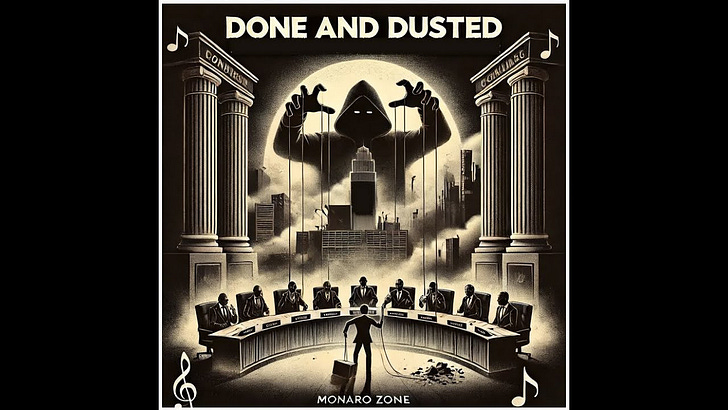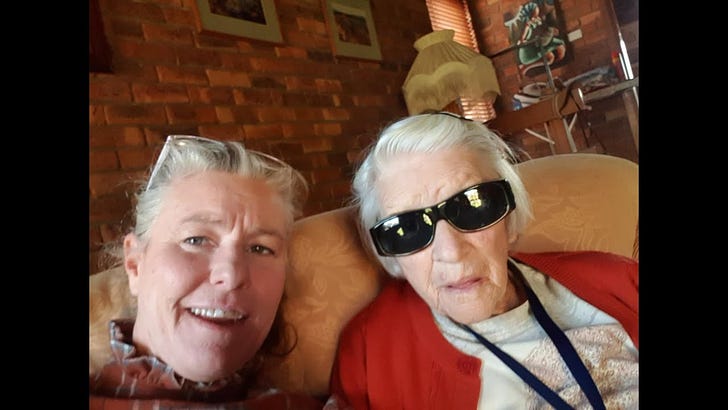Is the PIO a Smokescreen?
Could Snowy Monaro’s struggles uncover a larger web of corruption? - By Chris Chan
As we head into the first meeting of the year, it's helpful to remember how we ended up here. Here is my best attempt at creating a continuous factual narrative as to where we're currently at.
The Snowy Monaro Regional Council (SMRC) has once again found itself in the spotlight, this time under the shadow of a Performance Improvement Order (PIO) issued by the state government. While the order’s stated aim is to address governance and operational inefficiencies, whispers of deeper issues—including potential corruption at the highest levels—are gaining traction. To understand the significance of this moment, one must consider the turbulent dynamics that have unfolded since the council’s most recent election in October 2024.
A Shocking Election Outcome
What a fascinating election outcome it was indeed. Long-time local and Emerius Professor from the University of Sydney, Reuben Rose's first venture into local politics captured 25% of the first preference Jindabyne vote.
Few predicted the election results that saw Councillor Andrew Thaler outperform two ex-mayors, John Rooney and Narelle Davis. This unexpected outcome stunned both council staff and councillors, especially those aligned with the dominant faction led by Councillors Hanna, Summers, and Higgins. During the campaign, what seemed to be jokes were exchanged among the incumbents, suggesting they’d rather see the council placed into administration than collaborate with Thaler. However, as the votes were tallied and Thaler’s position secured, this jest took on a far more serious tone.
A Legal Battle Brewing
Around this time, CEO David Hogan and several councillors sought legal advice to limit Thaler’s influence. Using ratepayer funds, they explored ways to bar him from council premises, including the Council Chambers. These efforts were driven by a deep resistance to Thaler’s combative style and his commitment to exposing alleged governance failures.
Yet, their legal maneuvers hit an unexpected roadblock. Under current legislation, there was no viable way to prevent Thaler from fulfilling his role as an elected councillor. Despite this, the council’s executive and the “Gang of Six”—a faction including Hanna, Hopkins, Rooney, Davis, Summers, and Higgins—continued to pursue various strategies to obstruct Thaler’s participation.
Thaler Fights Back
Unsurprisingly, Thaler’s legal team pushed back and threatened Supreme Court action. Their argument was clear: any attempts to bar Thaler from serving as a councillor were not only unjust but also legally indefensible. Thaler wouldn't be required to act on this legal threat, as the council backed down, and the CEO a few days later resigned instead. Such a victory deeply embarrassed some within the SMRC executive branch - and together allegations were made that female Labor councillors Higgins and Summers demanded that physical security be called for each meeting - something that the ratepayers are still paying.
The CEO’s Resignation
Possibly recognizing the untenable position he faced, CEO David Hogan tendered his resignation less than one year into his five year contract, and just before the first council meeting. Sources close to the matter suggest that Hogan’s decision was influenced by the likelihood of working alongside Thaler and the potential exposure of internal council practices during a prolonged legal battle.
This resignation would not be handled well, and would lead to a whole host of other issues. For instance, Hogan would resign to Mr. Hanna, who at that time was not yet sworn in as a councillor nor elected mayor. The Local Government Act requires that the CEO tender his resignation in writing to the governance body (the councillors). Chris Hanna and the executive would attempt to suppress the release of his resignation letter. One is poor governance, and the other is unlawful.
The Independents as they became affectionately labelled, included Rose, Williamson, Stewart, Elliot and Thaler - would eventually be able to secure the resignation letter just short of the threat of court action - but it was clear that the incumbents, despite holding a 6 to 5 majority, were frustrated and seemed horrified that they would have to share their Chamber with the Independents.
A Surprising Mayoral Election
Leading up to the first council meeting, the mayoral election was expected to be a stabilizing moment, with both factions agreeing on Councillor Stewart as the compromise candidate. However, on the day, the Gang of Six abruptly changed course, leveraging their majority to elect Councillor Chris Hanna as Mayor. Dubbed the “boy Mayor” due to his youthful inexperience, Hanna’s leadership has been likened to a truck with failing brakes hurtling down a steep hill, leading the region into a dangerous dive.
A Convenient PIO
The intention to issue a PIO appears to have been set in motion well before the first council meeting in October. The Office of Local Government (OLG) and the Minister of Local Government’s attention to initial council proceedings raises questions about premeditated involvement. Despite Thaler’s disruptions at the early meetings (questioning the validity of the process for taking the oath of office), since then the meetings have been orderly, marked by vigorous but respectful debate.
It’s plausible that the PIO was orchestrated by Mayor Hanna, Councillors Summers and Higgins, and possibly even the Local Member for Monaro, Steve Whan. Whan, with his close ties within the Labor Party and the two Labor councillors, appears to have had advance knowledge of key events, including Hogan’s resignation.
An Unsustainable Situation
The PIO’s focus on councillor conduct and the council’s dire financial state conveniently shifts blame away from the Mayor’s leadership and the function of the executive branch, which holds primary responsibility for daily operations. This raises concerns that the PIO is being used as a smokescreen to obscure an unsustainable economic situation, paving the way for the council’s administration. Such a move would likely scapegoat the Independents, with the Gang’s apparent hope being to disenfranchise the voters who placed their trust in them, eroding public confidence in local democracy.
A Dubious Interim CEO Appointment
In bouncing from one failure to the next, the Gang of Six pushed through the appointment of Stephen Dunshea as the new interim CEO. Dunshea’s controversial tenure at Shoalhaven City Council saw its debt skyrocket from $15 million to over $180 million. Councillors were reportedly discouraged from researching his background, a red flag that suggests ulterior motives behind his selection.
Dunshea's time at Shaolhaven was so fractious, that there is a group online, with hundreds of Shaolhaven residents happy to share facts regarding his tenure: Eye on Shoalhaven Council (almost 800 members at the time of release).
Shortly after Dunshea’s appointment, the PIO was officially issued. This sequence of events fuels speculation that the PIO’s outcome—administration or a heavily regulated council chamber—was predetermined, with the appointment of Dunshea being specifically placed by the Minister of Local Government or his Office.
Social Media’s Role
Unlike in the past, when the mainstream media could be cowed into silence, social media now ensures that council dealings are scrutinized by the public in real time. Attempts to gaslight the community through trolls and biased media coverage are losing efficacy. Olivier Kapatenakos, a close ally of Mayor Hanna, has repeatedly predicted and blamed the Independents for impending administration. Yet his posts are increasingly met with skepticism and ridicule.
The Bigger Picture
The next event will be the Minister actually issuing a PIO because there is the “theatre” of seeking a collective response from the councillors. It seems certain, given the political machinations, that he has no intention of taking note of feedback. The PIO has one person squarely in its sights - Councillor Thaler. The Labor faceless men and women and their henchmen will stop at nothing to make sure that Thaler is neutralised as a councillor.
If the Independents refuse to sign the PIO, the Minister for Local Government may suspend or dissolve the council and appoint an administrator. This outcome, while devastating for democracy, would fulfill the Labor Party’s apparent agenda: silencing dissent and consolidating control over the Snowy Monaro region.
A Well Timed Outcome
Just as the situation seemed hopeless, a document detailing these machinations may have found its way to an ICAC insider. What began as a regional power grab could likely evolve into a national scandal, exposing Labor Party nepotism and corruption ahead of a federal election. The Snowy Monaro’s fight for justice may yet reshape the political landscape.











